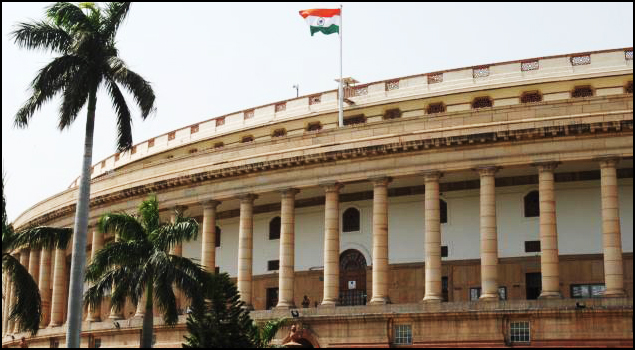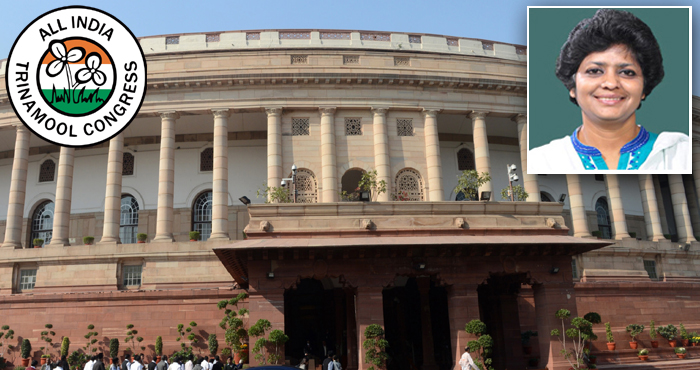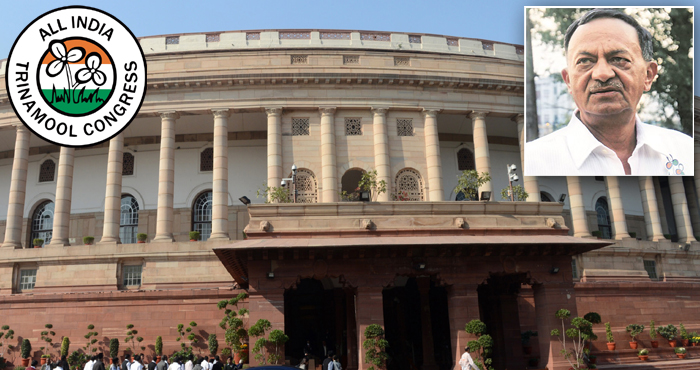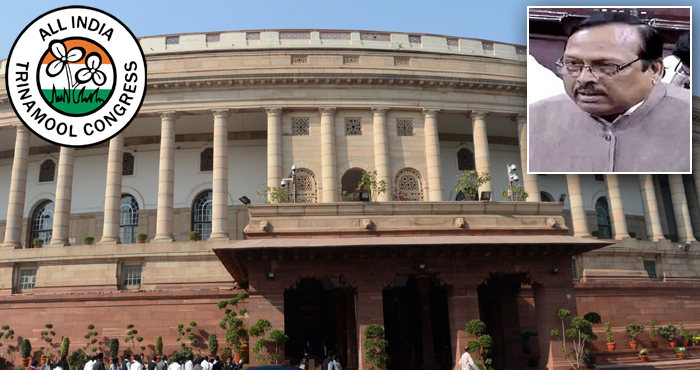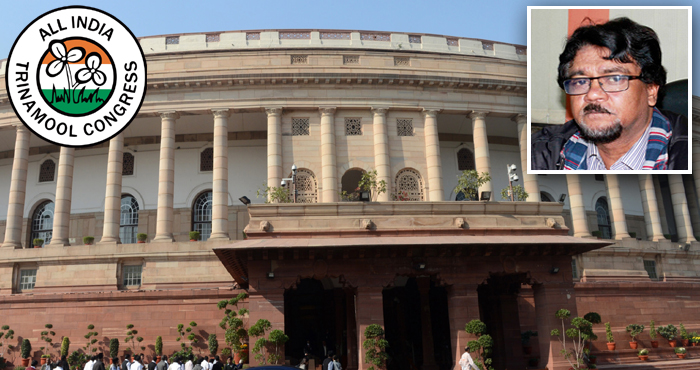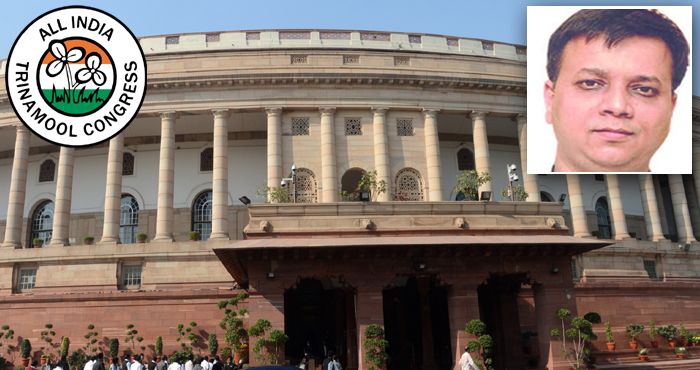FULL TRANSCRIPT
Mantri Ji hain, humlog bahut abhari hain ki 30 saal baad ek Bill aa raha hain, jo much awaited tha. Bahut dino se iski zaroorat thi, yeh Bill aane ki, kyun ki jitni accidents badh rahi hain, road accidents – maloom honge sabhi ko ki hum haal hi mein, mera bhi aisa bohot bada car accident hua tha last year, ek saal mujhe bhugatna pada. Hum jaante hain Mantri ji ki tarah ki kya sach mein problem hain, kahin roads ki problem hain kahin speed ki problem hain, kahin logon mein jaankari ki problem hain, Mantri Ji ne bohot bakhoobi se yeh sabhi ko dekhe hain, sabhi maddenazar rakhte huye sabhi points laye hain. Hum yeh Standing Committee ki member hain, usi Standing Committee ki, jahan yeh Bill ayi huyi thi aur humlog baith ke bohot saare baat kiye.
Hum do teen cheez bolenge. Pehli baat to yeh kahenge ki yeh bahut hi achcha hain ki jo compensation badha diya hain, kahin Rs 25,000 tha, woh Rs 2,00,000 hua hain. Jo compensation Rs 2,00,000 tha, woh Rs 10,00,000 ho gayi. Par ek cheez mujhe samajh mein nahin aayi ki agar Court batati hain ki Rs 10,00,000 ke upar diya jayega, iss se Rs 12,00,000 ya Rs 15,00,000 aapko milega, toh yeh baki ke paise kahan se aayega? Yeh kuch samajh mein nehi aaya, agar Mantri Ji thoda clear karenge unke bhasan mein toh yeh behtar rahegi ki zyada paisa kahan se aayegi?
Abhi problems hum Clauses le ke baat nahin kar rahe hain kyunki Clauses saare bole hain, hum kuch points de rahe hain, aur utna time bhi nehi hain.
Existing license-holders jo hain, abhi jinke paas license hain, abhi jiske aanewale hain unke liye hum bahut provisions kar rahe hain. Ek learning license online kiya gaya hain. Iske liye meri ek chhoti si baat hain ki yeh joh Learning License agar kisi ko online mil jayega, aur woh usko ek mahina baad agar uske upar kaam karega, toh matlab usko bulaya jayega ya toh iss dauran uska jo ek mahine ke andar yeh agar koi accident karta hain, toh iske zimmedari kiss pe jayegi? Yeh online license ke bare mein yeh choti si problem mujhe lagti hain.
Aur yeh joh existing license jinke paas hain, joh chal raha hain, uske liye kya soch hain? Bill mein pravdhan liya hain ki special training diya jayeja. Jiske paas existing license hain unke liye kya kiya jayega, kyun ki hum jab travel karte hain, aksar dekhte hain, lane ki pehchan nahi hoti hai. Kiss side se jaana chahiye, ek truck ya gaadi aa gaya, aur kaise denge side unko, yeh sab ki jaankari dena zaroori hain. Yeh thik hain ki aap CCTV lagayenge, par yeh sab karne ke liye, kya Central Government iska provision dengi? Iska financing ka provision kahan se aayegi? Kitna time lagega? Bola gaya hain ki, October 2018 se sabhi testing centre automated ho jayega. Mein yeh keh rahi hoon ki automated testing centre State mein bahut kam hai, abhi UP meh sirf ek automated testing centre hain. Kya October 2018 tak sab complete ho payega? Yeh bahut muskhil baat hai. Mujhe lagta hain, Mantriji, agar phir se soche kaise inko time limit diya jayega to woh behtar hoga.
Mantriji ek aur baat boley they, agar koi aap ka paper dekhna chahega, toh aap apna mobile pe search karke apna paper dikha sakte hain, par iske liye online hona zaroori hain. Mantriji ap jaante hain, yahan BSNL/MTNL ka kya haalat hai? Phir bhi agar online proper nahin aayega kyun ki aap Central Hall main chale jaye aapka Wi-Fi nahin aati hain. Aur hamare MP ke ghar mein jaaye, Wi-Fi nahin aati hain toh iss liye bol raha hain ke online ka system agar proper nahi honge to yeh bahut problem wali baat hai. Aur agar aise paper dikhanewali baat hain toh wahan pe police aayega, sochte hain iske liye ki kaise kiya jayega iske liye soch bahut zaroori hain nahin toh bahut mushkil ho jayegi. Drunken driving, yeh ek bahut important point yahan pe kiya gaya hain, drunken driving ke baare mein ek kehne wali baat hai, yeh joh test hain drunken driving iske test bahut kum, toh iske liye sabhi jageh mein jana zaroori hai, dena zaroori hai. Iske liye ek timeframe ki zaroorat hai. Toh yeh timeframe ke baare mein Mantri ji ka kya soche hain ye mujhe lagta hain bahut zaroori hain. Defective roads, jiske baren mein sabhi bol rahe hain, yeh defective roads ke chalte, National Highway mein bhi hain aur bahut saare State Highways mein bhi problem hain, yeh jo defective roads hain agar yeh defective roads ke karan joh accidents hote hain usko humlog abhi kaise samhalenge, matlab yeh Bill agar pass ho jayegi to yeh sab provisions aah jayega. Toh yeh agae chalke kaise karenge yeh sab defective roads ke problem ko kaise saltaya jayein sochna padega.
Aur ek baat, hum zaroor kehenge, ki eh Bill ke, is Bill main State Government ko cooperative federalism ki jo baat ho rahi hain, State Government ko bahut kam confidence mein liye gaye hai. Yeh State Government ko zyada – abhi hamari colleague bol rahe they ki West Bengal se Transport Minister aaye nahin hain, humare wahan se aksar hamari wahan batein hu hai, hum log jab Standing Committee main bulaye teh, sabhi Transport secretaries ko, sabhi aaye teh, saab aapni aapni baat rakhe teh. Aur ushike ke hisab se hum log diye hai. Toh meri kehne wali baat ye hai ke agar cooperative federalism ko yehan pe jod dena bahut zaroori hai, State ko confidence main lana bahut zaroori hai, National Transportation Policy main State ko confidence main lana chaheye aur ye jo NH main agar lanes aalag ho sakta hai, mata nahi yeh kaisa aap sochenge ke NH ke agar lanes aalag ho sakta hai toh sabse behtar rahegi. Aur drivers ki jo comfort, humari colleague bol raha teh, drivers ki comfort, number of drivers badhana yeh bahut zaroori hain.
Humari colleague bol raha teh Driver’s ke comfort, number of drivers badhaana. Yeh bahut zaroori hain. Ekh hi drivers 14-16 jhanta drive kar raha hain. Unke liye number of drivers, yeh sab agar mandatory nahin kiya jayega toh aage jaake shayad ye problem ho jayegi. Drivers ke comfort ke baare mein humlog ko sochna chahiye. Hum aksar dekhte hain ki jab National Highways jaate hain, gaadi khari hain, samney ja ke dehkte hain ki driver so gaye hain. Uske chalte pura atak gaya sab. Ye Bill pass ho jaane se sabhi aa jayenge par aage se ye kaise implement kiya jayega, iske liye sochna chaiye. And making of vehicles, hum dehkte hain yahan pe bahut speed mein gaadi chalane ki ek humari jo bachho mein aadat hai ki motor bike bahut zor se chalaya jaye toh unko herogiri zyada lagta hai. Gaari ke liye bhi ye hota hain. Aisa kya kiya jaa saktha hain ki nahin agar soche aage chalke ki jo vehicles banatein hain, unko agar bola jaye ki India mein agar jo gaadi 80 ya 100 se zyada chalti hain, chal nahin payenge usko aap kyun 180 ka speed bana rahe ho.Tab woh toh chalayenge 100, 120 mein, 140 mein. tab toh accident hone ki chances hain. Woh speed agar wohi se, making ke time mein, manufacturing ke time mein hi speed control kiya jaye. Agar manufacturing ke time mein, yeh overloading of the lorries, jaise 10 ton ki lene ki baat hain 40 ton le liye hain. Yeh agar usko wahin se control kiya jayega toh aage chalke shayad ye sab problem suljha sakhte hain. Aage chalke mera mantri ji se yehi kehna hain ki aap jo Bill laye hain, ye Bill hum pura samarthan karte hain aur aisa Bill bahut kam aate hain. Hum sabhi aapke abhari hain aur aage chalke agar jo hum soch rahe hain, agar aap bhi iss mein zyada aapka dimaag daalein, hum jaante hain ki aap bahut sare soch rakhte hain. Aisa kuchh sochein toh aage chal ke humare liye bhi bahut achha hoga.
Thank you very much.

